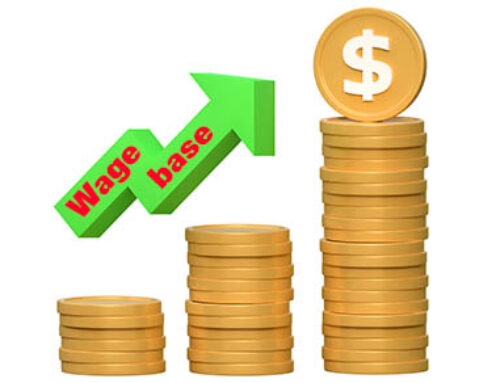Does your business receive large amounts of cash or cash equivalents? You may be required to submit forms to the IRS to report these transactions.
Filing requirements
Each person engaged in a trade or business who, in the course of operating, receives more than $10,000 in cash in one transaction, or in two or more related transactions, must file Form 8300. Any transactions conducted in a 24-hour period are considered related transactions. Transactions are also considered related even if they occur over a period of more than 24 hours if the recipient knows, or has reason to know, that each transaction is one of a series of connected transactions.
To complete a Form 8300, you will need personal information about the person making the cash payment, including a Social Security or taxpayer identification number.
You should keep a copy of each Form 8300 for five years from the date you file it, according to the IRS.
Reasons for the reporting
Although many cash transactions are legitimate, the IRS explains that “information reported on (Form 8300) can help stop those who evade taxes, profit from the drug trade, engage in terrorist financing and conduct other criminal activities. The government can often trace money from these illegal activities through the payments reported on Form 8300 and other cash reporting forms.”
What’s considered “cash”
For Form 8300 reporting, cash includes U.S. currency and coins, as well as foreign money. It also includes cash equivalents such as cashier’s checks (sometimes called bank checks), bank drafts, traveler’s checks and money orders.
Money orders and cashier’s checks under $10,000, when used in combination with other forms of cash for a single transaction that exceeds $10,000, are defined as cash for Form 8300 reporting purposes.
Note: Under a separate reporting requirement, banks and other financial institutions report cash purchases of cashier’s checks, treasurer’s checks and/or bank checks, bank drafts, traveler’s checks and money orders with a face value of more than $10,000 by filing currency transaction reports.
E-filing and batch filing
Businesses required to file reports of large cash transactions on Form 8300 should know that in addition to filing on paper, e-filing is an option. The form is due 15 days after a transaction and there’s no charge for the e-file option. Businesses that file electronically get an automatic acknowledgment of receipt when they file.
The IRS also reminds businesses that they can “batch file” their reports, which is especially helpful to those required to file many forms.
Setting up an account
To file Form 8300 electronically, a business must set up an account with FinCEN’s BSA E-Filing System. For more information, interested businesses can also call the BSA E-Filing Help Desk at 866-346-9478 (Monday through Friday from 8 am to 6 pm EST) or email them at BSAEFilingHelp@fincen.gov. Contact us with any questions or for assistance.
© 2020




